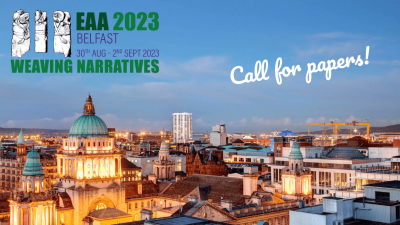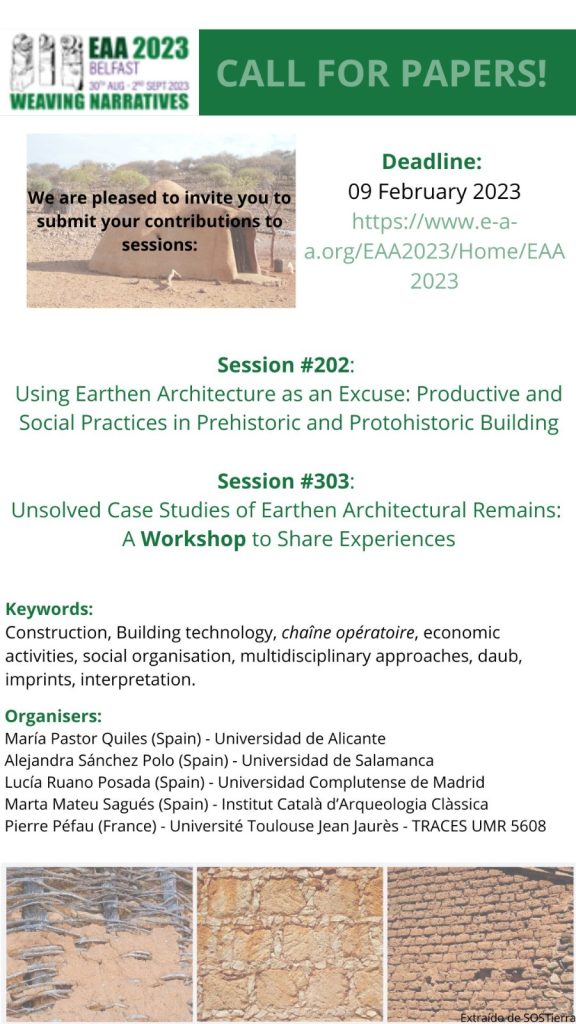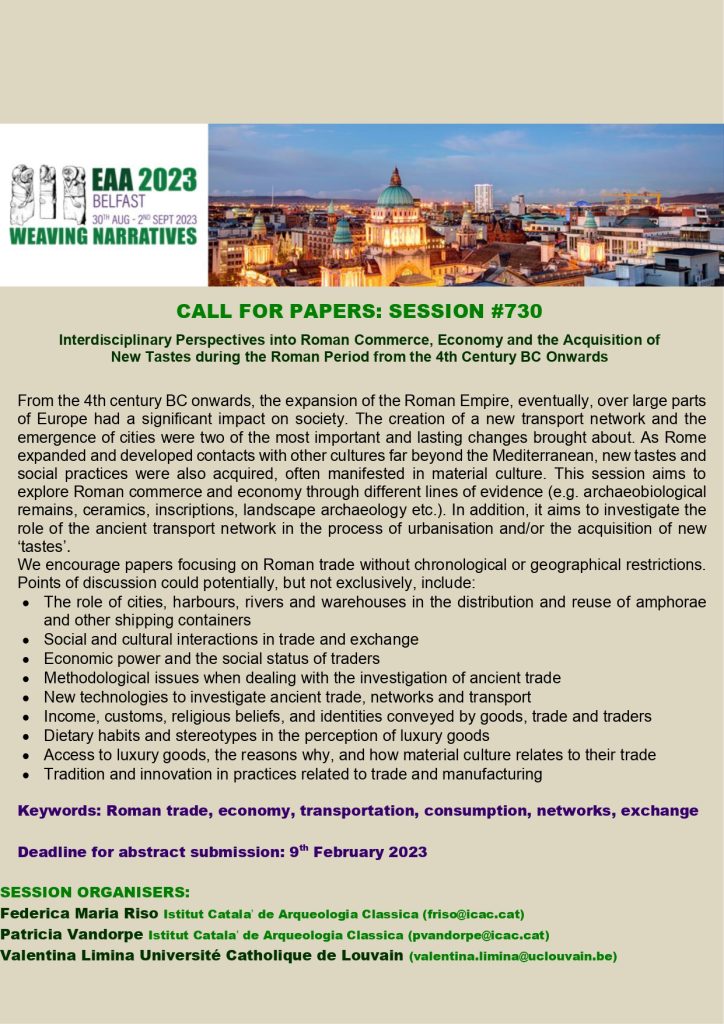
The ICAC will be again at 29th EAA Annual Meeting in Belfast, with the coordination of Sessions 202, 303 and 730.
The upcoming 29th Annual meeting will take place in Belfast (Northern Ireland) between the 31st August and 2nd September 2023. The main venue for the conference is Queen’s University Belfast which was founded by Royal Charter in 1845 during the reign of Queen Victoria. It will be a fully hybrid conference. The Scientific Committee, along with the Board have compiled an array of exciting themes, which await thought provoking papers proposals, the call for which ends on the 9h February 2023.
The event is organised by the Department of Archaeology & Palaeoecology in the School of Natural and Built Environment at Queen’s University Belfast, working in conjunction with Visit Belfast, Tourism Northern Ireland and Belfast City Council, with support provided by a range of partners from across the island of Ireland.
The Annual Meeting themes, as defined by the Scientific Committee, incorporate the diversity of EAA and the multidimensionality of archaeological practice, including archaeological interpretation, heritage management and politics of the past and present.
The three sessions with ICAC researchers as coorganizers are:
Session #202: Using Earthen Architecture as an Excuse: Productive and Social Practices in Prehistoric and Protohistoric Building
Marta Mateu Sagués, postdoctoral researcher BdP at the ICAC, and María Pastor Quiles (UA), associate researcher at the ICAC, organised this session, along with Lucía Ruano (Univ. Complutense de Madrid), Alejandra Sánchez Polo (Univ. de Salamanca) and Pierre Péfau (Univ. Toulouse Jean Jaurès – TRACES UMR 5608).
Deadline: February 9, 2023
https://www.e-a-a.org/EAA2023/Home/EAA2023
Contact: m.pastor@ua.es
This session aims to tackle the archaeological detection and study of productive and social activities and practices involved in building processes during prehistoric and protohistoric times. For this we acknowledge the central role of studying earthen architectural remains and structures and all the information they may contain, also about other building components. At the same time, we intend to use earthen architecture as an excuse to explore the whole range of building materials available, such as wood, wattle, grass, stone, etc. …
Full Call for Papers #s202 – 303
Session #303: Unsolved Case Studies of Earthen Architectural Remains: A Workshop to Share Experiences
Aquesta sessió es pot considerar una sessió complementària a la sessió #202. Pretén ser un taller pràctic on els investigadors i les investigadores que hi participin comparteixin els materials arqueològics que portin i provin de resoldre conjuntament els dubtes que hagin sorgit a la Sessió teòrica 202.
Full Call for Papers #s202 – 303
This session is complementary to Session 202. It aims to be a practical workshop where participants share the archaeological materials they
bring and try to resolve together any doubts that may have arisen in the theoretical Session 202. However, other proposals not in the theoretical session can also be accepted.
Since focus here is not only on Prehistory or Protohistory, we accept papers from any era as long as the material presented is raw earth. At this point, we refer to the identification of earthen materials (from a macroscopic view to a microscopic approach, including XRD, XRF, FTIR, petrology, etc.), paying attention to imprints, decoration, and composition to understand the different construction techniques (wattle and daub, cob, mud brick, etc.), as well as earthen furniture, roofs/ceilings, etc.
Deadline: February 9, 2023
https://www.e-a-a.org/EAA2023/Home/EAA2023
Contact: m.pastor@ua.es
Session #730: Interdisciplinary Perspectives into Roman Commerce, Economy and the Acquisition of New Tastes during the Roman Period from the 4th Century BC Onwards
MSCA researchers Federica Maria Riso and Patricia Vandorpe, both GIAP researchers at the ICAC, are organizing session 730, along with Valentina Limina (Catholic University of Leuven). Their call is open to various types of research on Roman trade, without chronological or geographical restrictions. This session aims to explore Roman commerce and economy through different lines of evidence (e.g. archaeobiological remains, ceramics, inscriptions, landscape archaeology etc.).
In addition, it aims to investigate the role of the ancient transport network in the process of urbanisation and/or the acquisition of new
‘tastes’. Researchers encourage papers focusing on Roman trade without chronological or geographical restrictions.
From the 4th century BC onwards, the expansion of the Roman Empire, eventually, over large parts of Europe had a significant impact on society. The creation of a new transport network and the emergence of cities were two of the most important and lasting changes brought about. As Rome expanded and developed contacts with other cultures far beyond the Mediterranean, new tastes and social practices were also acquired, often manifested in material culture. This session aims to explore Roman commerce and economy through different lines of evidence (e.g. archaeobiological remains, ceramics, inscriptions, landscape archaeology etc.). In addition, it aims to investigate the role of the ancient transport network in the process of urbanisation and/or the acquisition of new ‘tastes’.
Deadline: February 9, 2023
https://www.e-a-a.org/EAA2023/Home/EAA2023
Contact: friso@icac.cat







